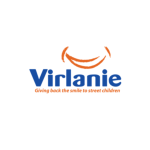

VIRLANIE – SUPPORTING VULNERABLE CHILDREN AND COMMUNITIES IN THE PHILLIPINES
VIRLANIE – SUPPORTING VULNERABLE CHILDREN AND COMMUNITIES IN THE PHILLIPINES
The Virlanie story started in 1987, when a french social worker called Domonique Lemay came in the Philippines for a study on street children. He discovers the reality of the street conditions and the high poverty who touch many families here. He founded Virlanie in 1992 with the help of filipino’s social workers. Since its inception, Virlanie has supported over 22,000 children in highly vulnerable situations, focusing on more sustainable programs for marginalized families to prevent the cycle of intergenerational poverty. It aims to prevent child abuse by building stronger families, breaking the chain of poverty and giving access to education to street children.
THE CAUSE WE SUPPORT
To meet the needs of these young people, Virlanie deploys three major programs: the residential program, the street program and the Communities program.
Résidential program: Four Homes are designed according to the psychological development of children and adapted to specific age groups. Each home is organized around the rights and needs of the child.
Street program: The Mobile Unit provides health and social services, educational services, administrative and legal support. They act in one of the depressed areas in Manila, -Aroma Tondo. Satisfying the needs and fundamental rights of the most marginalized populations is the first step and the essential framework for their future integration into society.
Community program: This program targets poor communities in selected area in Metro Manila (Bagong Silangan and Rolling Hills in Quezon City, Quiapo, and Parola), where it carries out community interventions, including family strengthening session, livelihood and vocational training, income-generating projects and educational assistance to schooling children. It aims to prevent child abuse and neglect by building stronger families and sustainable communities.
Those programs helped 651 children and young adults in a year, and 638 families. There were also 300 hours of education with 3320 hours of academic support provided and 1396 meals and 413 hygiene kits given.
Target amount sought: HK$